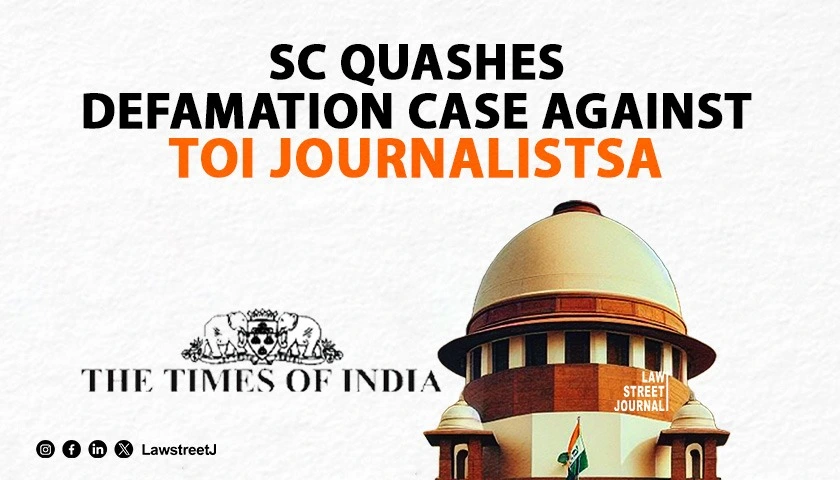New Delhi: The Supreme Court has delivered a significant judgment emphasizing the importance of responsible journalism in defamation proceedings against several journalists, highlighting the media’s crucial role in shaping public opinion.
Justices J.B. Pardiwala and R. Mahadevan made key observations on press freedom and its responsibilities while addressing multiple criminal appeals.
Supreme Court Verdict on Defamation: Relief for Times of India Journalists
The court dealt with criminal appeals filed by Jaideep Bose, Nergish Sunavala, Swati Deshpande, and others against M/s. Bid and Hammer Auctioneers Private Limited. It noted, “The power of the media in shaping public opinion is significant. The press possesses the ability to influence public sentiments and alter perceptions with remarkable speed.”
Press Freedom vs. Defamation: Key Takeaways from Supreme Court Ruling
Addressing specific complaints about the news articles, the court observed, “A single article or report can resonate with millions, shaping their beliefs and judgments. It has the capability to cause severe damage to the reputation of those concerned, with consequences that may be far-reaching and enduring.”
The court highlighted procedural irregularities in the case, stating, “The Magistrate, without a proper examination and inquiry, proceeded to issue summons to the appellant (A2). It is also pertinent to note that the appellant (A2) resides in Mumbai, which falls outside the jurisdiction of the concerned Magistrate.”
In a specific directive, the court instructed that news articles must be published in the public interest and in good faith while emphasizing the need for accuracy and fairness in media reporting.
The court further emphasized that while editors bear primary responsibility under the Press and Registration of Books Act, 1867, other officials can be held liable only if specific allegations demonstrate their involvement in the publication process.
The appellants’ advocates argued that the case lacked specific allegations and involved procedural irregularities, while the respondent maintained that the publications had harmed their reputation.
The Supreme Court allowed all appeals and quashed both the High Court’s order and the criminal complaint against the appellants.
Case Title: Jaideep Bose v. M/S. Bid and Hammer Auctioneers Private Limited & Connected Matters











